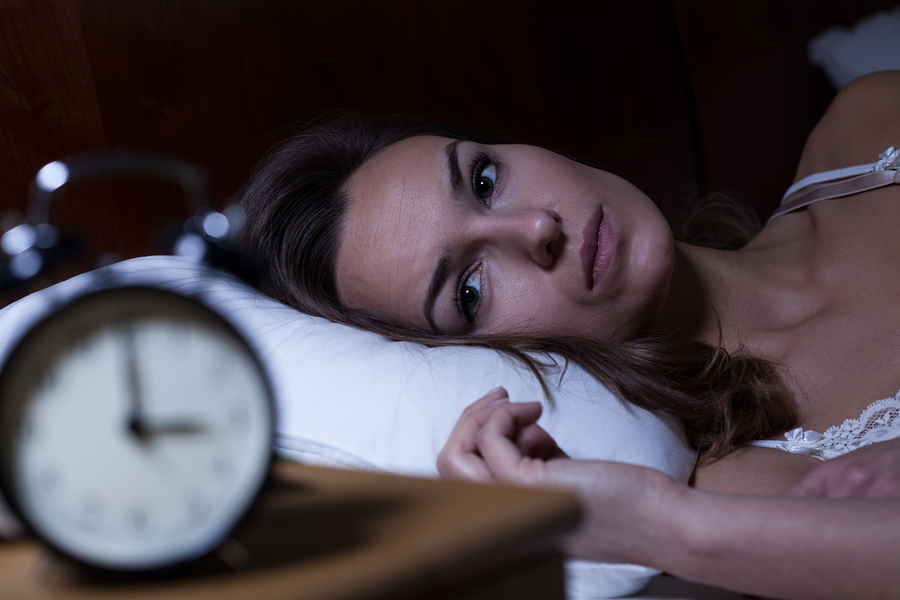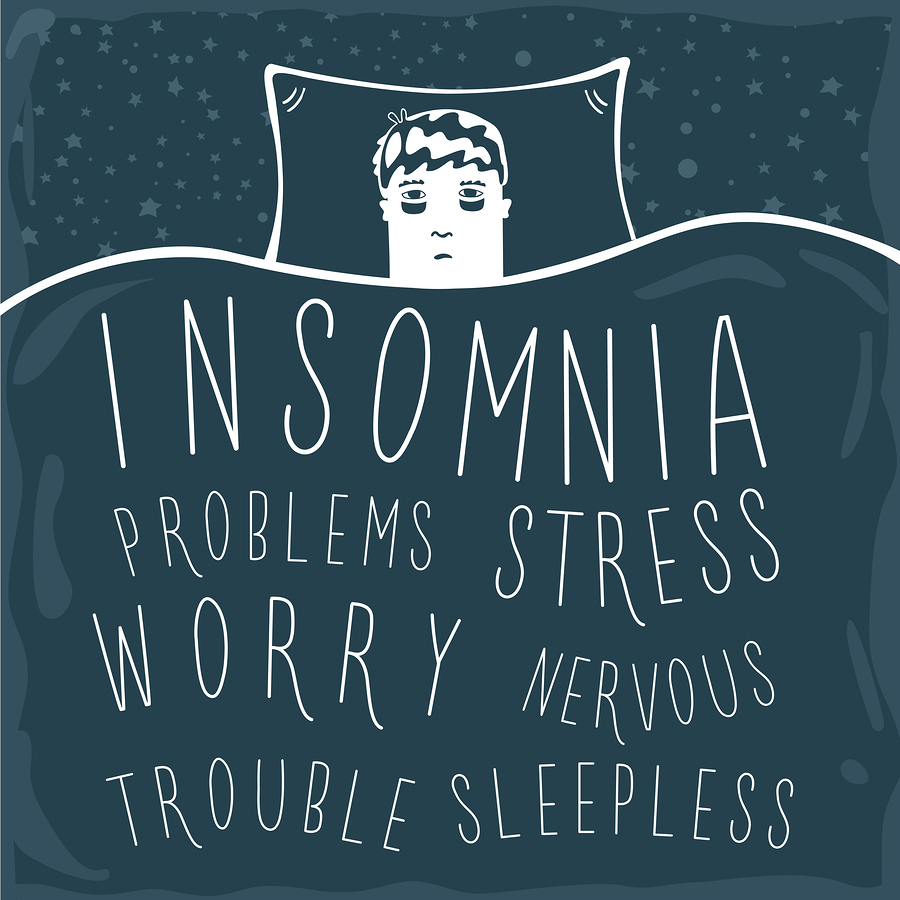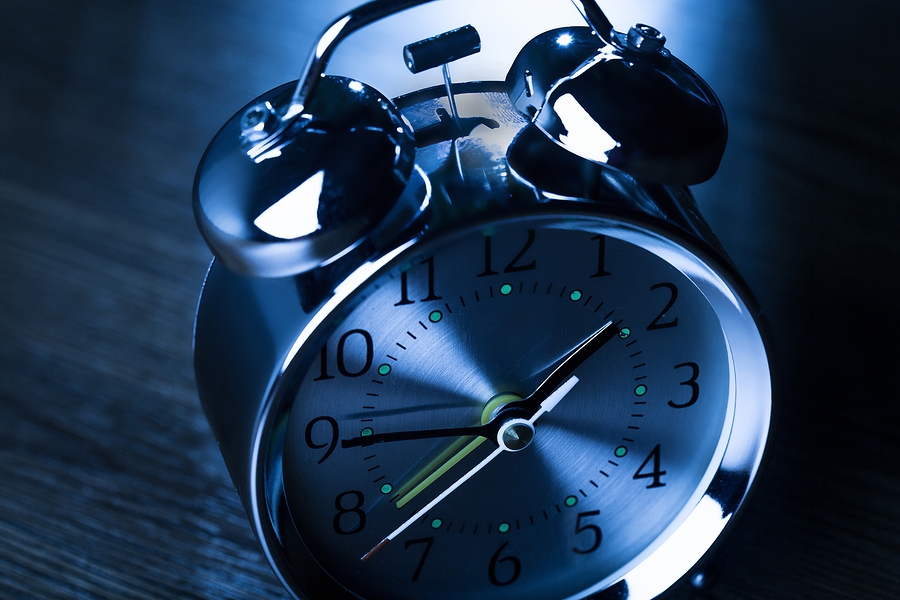- Make It Yourself Lavender Heart-Shaped Bath Bombs!
- 20 Things You Never Knew About “Down There”
- 12 Best Foods For Those Suffering From Arthritis Pain
- 12 Personal Hygiene Mistakes Almost Everyone Makes (Mom Never Told You About #4!)
- 15 Medicinal Plants And Herbs From The Cherokee People
- 12 Mind-Blowing Benefits Of Drinking Coconut Water During Pregnancy
- 12 Outstanding Winter Foods That Won’t Fatten You Up Like A Christmas Turkey
You’ll Be Surprised To Know These Tricks Are Helpful For Insomnia

Photo credit: bigstock.com
Everyone has a night or two where they just can’t sleep. They find themselves tossing and turning, but not sleeping. They look at the clock and watch as the time goes by until they realize they are going to pay for this the next day. Sure enough, they wake up exhausted and spend the rest of the day ready to rest their head and take a nap at any given moment.
There are some people who suffer from insomnia on a regular basis. There are many reasons that insomnia can occur and there are ways to not only treat it, but habits you can form to make sure you get a good night’s sleep all the time.
Different Types of Insomnia
There are several different ways you can tell if you have insomnia. If you just can’t fall asleep, keep waking up at night and can’t get back to sleep, wake up too early, or when you wake up you still feel tired, it is most likely that you are suffering from insomnia.
People either find that they cannot sleep because they have health issues or personal issues that are keeping them from sleeping. Your bout of insomnia can be a short-term issue or it can be chronic.
Acute insomnia can be from any of the following reasons:
- Sickness
- Physical or emotional problems
- Life stress – divorce, losing your job, changing jobs, death of someone you love
- Certain medications
- Uncomfortable surroundings – bright lights, too noisy, too hot or too cold
- A switch in your sleep patterns from a change in jobs from day shift to night shift or jet lag from traveling
- Losing an hour when switching to Daylight Savings Time
Chronic insomnia doesn’t go away immediately and can be caused by:
- Chronic pain at night
- Prolonged stress
- Major anxiety and depression
Continue to Page 2

Photo credit: bigstock.com
There are 8 major causes of insomnia:
1. The Way You Eat and Drink
Eating a big meal before you turn in to go to sleep could be too much to digest and can keep you up as well as leave you with heartburn. Try to stay away from caffeine around six hours before you head for bed. Alcohol is also a no-no. It can make you doze off initially but you will be wide awake before you know it and unable to fall back asleep.
2. Allergies
A study on people with asthma showed that 59 percent of those participating with nasal allergies ended up having trouble falling asleep. It was determined that those who had stuffy noses and itchy eyes from allergies were also more susceptible to suffer from insomnia.
3. Neurological Illnesses
People who suffer from any conditions of the brain, like a stroke, Alzheimer’s, and Parkinson’s take medications that can keep them up at night. Doctors say that it is because of chemicals that may interfere with your sleep and changes that occur in different regions of the brain.
4. Restless Leg Syndrome
This condition is just as it sounds: You just can’t seem to keep your legs comfortable. Even though there is medication that can help ease this situation, a study found that those with restless leg syndrome have trouble sleeping because they have a higher level of glutamate which is a neurotransmitter that keeps your legs moving.
Continue to Page 3

Photo credit: bigstock.com
5. Unrelenting Pain
More and more people are having to live with chronic pain due to a number of conditions. Fibromyalgia, back pain, arthritis, and the aftermath of a stroke cause people to constantly seek relief from painful joints. Only 36 percent of people with chronic pain are able to get a good night’s sleep, the rest of the people suffer from insomnia.
6. Your Prescription Medications
There are many medications that include insomnia as a side effect. Some medications that could be keeping you awake at night include prescriptions for asthma, depression, a cold, depression, and high blood pressure.
7. Depression or Anxiety
It was determined that many people who suffer from depression either sleep too much or have a hard time falling asleep. Eighty percent of those with depression have issues with sleeping. Anxiety over every day problems can keep people awake and then the fact that they can’t sleep adds to the anxiety.
8. Genetics
Studies were performed to determine if genetics played a part in peoples’ insomnia. They studied those with restless legs syndrome to see if that was a hereditary issue. Other reasons that caused insomnia, such as anxiety and depression were found to be genetic issues.
Continue to Page 4

Photo credit: bigstock.com
How You Can Treat Insomnia
- Talk to your doctor about giving you a prescription to help you sleep. Over-the-counter medications are not that effective and may have harmful side effects.
- Seek treatment of any medical conditions that you have that may be the cause of your insomnia.
- Try relaxation exercises before you go to sleep
- Practice meditation. Listen to guided meditations you can find on the Internet
- Stay busy during the day and keep moving. You may not be able to sleep because you haven’t done enough during the day to make you tired.
6 Ways You Can Rid Yourself of Insomnia
1. Set yourself a schedule for going to sleep each night and waking up in the morning.
2. Keep reading devices and cell phones as far away as you can so you are not affected by the light they give off or any sounds they may have.
3. Try taking sour cherry juice before going to bed. This juice contains melatonin which is a natural sleep treatment.
4. Exercise daily but not for at least four hours before you go to bed.
5. Try to eat a lighter dinner. If you find yourself hungry before turning in, eat a light snack. Sometimes feeling too hungry could wake you up and keep you awake.
READ ALSO: 7 Effective Herb Recipes To Fight Insomnia Video
6. If you find yourself waking up at the same time every night try staying in bed and falling back to sleep. Waking up at the same time is more of a pattern that you can try to break and get back to sleeping through the night.
References:
































